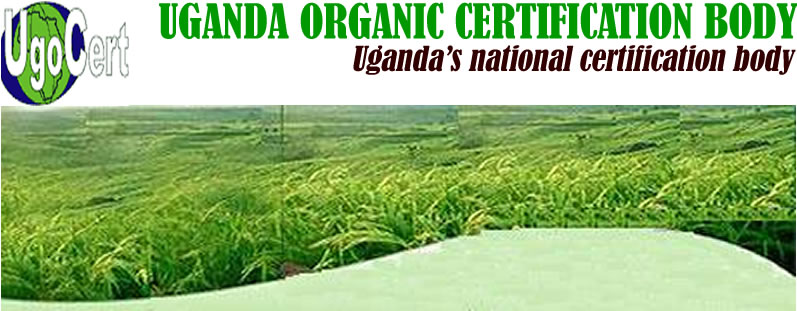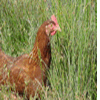Are you interested in learning about organic farming, but don’t know where to start? Enter the world of sustainable agriculture with this guide! With step-by-step instructions and advice on soil health, crop production, and animal husbandry, you can create a farm that is both environmentally friendly and economically viable.
Introduction to organic farming
Organic farming is a sustainable way to produce food that is free from harmful chemicals and pollutants. It is based on the principles of nature, which are simple but powerful. By following these principles, organic farmers can create healthy soils and thriving crops.
Soil health and fertility
Soil health is vital for organic farming success. Properly maintaining soil fertility is key to organic farming success. Proper crop rotation and fertilization are essential to organic farming success. Proper animal husbandry is also essential for organic farming success.
A healthy soil is composed of a rich mixture of microorganisms, fungi, and earthworms. These microorganisms help to digest the food that we feed the plants, releasing the nutrients that the plants need to grow. A healthy soil will also contain significant amounts of organic matter (compost, leaves, grass clippings, etc.), which helps to hold moisture and keep the soil warm.
Proper soil fertility is essential to producing healthy vegetables and fruit. Fertilizers and other additives can damage or destroy the delicate balance of soil organisms. In order to produce high-quality vegetables, it is important to use a variety of organic fertilizers and amendments (high in humus content) that are tailored to the specific needs of the particular vegetable or fruit crop.
It is also important to rotate crops so that the soil’s nutrients are periodically refreshed. By alternating crops in a garden or orchard, you help to build up a reserve of nutrients that can be used by succeeding crops.
Finally, animal husbandry is also important for sustainable agriculture. Properly managed livestock can help to improve soil health, reduce erosion, control pests, and generate manure that can be used as fertilizer.
Crops and vegetables
When starting out as an organic farmer, it is important to choose the right crops for your farm. There are many types of crops available, each with its own advantages and disadvantages. For example, some crops are better suited for high-traffic areas, while others are better suited for smaller gardens.
When selecting a crop, it is important to consider several factors, including the climate where you live, the soil conditions in your area, and the type of produce you want to grow. Some vegetables, such as potatoes and beans, can be grown almost anywhere. Other vegetables, such as cabbage and cucumbers, require a warm climate with well-drained soil.
Once you have chosen the crops you want to grow, it is important to take care of them correctly. Good soil health is essential for successful organic farming. Poor soil can be acid or alkaline, dry or wet, rocky or sandy, and contains too much clay or not enough sand. For best results, add organic matter (fertilizer) to your soil every year to help it stay fertile and healthy.
Finally, remember to enjoy your garden! Growing your own vegetables is an enjoyable way to decrease your reliance on processed foods and harmful chemicals.
Animal husbandry
Understanding organic livestock farming
Organic livestock farming is a way of raising livestock that uses organic practices to manage the environment and produce healthy meat, milk, eggs, and fiber. There are many different types of organic livestock, including dairy cows, pigs, and chickens. Each animal has its own unique needs that must be taken into account when raising them.
Different organic livestock require different feeds. Dairy cows need a high-quality feed that is rich in protein and essential minerals, while pigs need a diet that is high in fiber. Chickens need a mix of grains, legumes, and seeds to thrive.
Organic livestock must be housed in an appropriate way. Dairy cows should be housed in a Barn, which is a large structure with lots of space for them to roam. Pigs and chickens should be housed in Hutches or Battery Holes, which are small structures with limited space.
The most important thing to remember when raising organic livestock is to keep an eye on their health. If an animal is not feeling well, it may not be able to produce the quality meat or milk that you desire.
Conclusion
Organic agriculture is an environmentally-friendly way to produce food that is safe for you and the planet. It is a great choice for people who are interested in healthier food and bettering the planet. There are many benefits to organic farming, including:
Improved Soil Health: Organic farming practices help to improve soil health by restoring fertility and promoting biodiversity. This makes the soil more absorbent and responsive to water, which helps to reduce water pollution and drought.
Reduced Chemical Use: By using fewer chemicals, organic farmers can reduce the negative environmental effects of their farming practices. For example, synthetic fertilizers may contain harmful chemicals that can harm aquatic life. Additionally, some pesticides can be harmful to people and wildlife.
More Humane Treatment of Livestock: Organic livestock are raised without antibiotics, growth hormones, or other animal-derived products. They are also allowed to forage freely, which helps to keep them healthy and reduces their need for feed. This means that organic meat is lower in fat and cholesterol than conventionally-produced meat.
With all these benefits – why not give organic farming a try? This guide provides everything you need to get started.
If you’re interested in sustainable food production, organic farming is a great option. This guide provides detailed instructions on how to start an organic farm, including tips for soil health and crop production.






